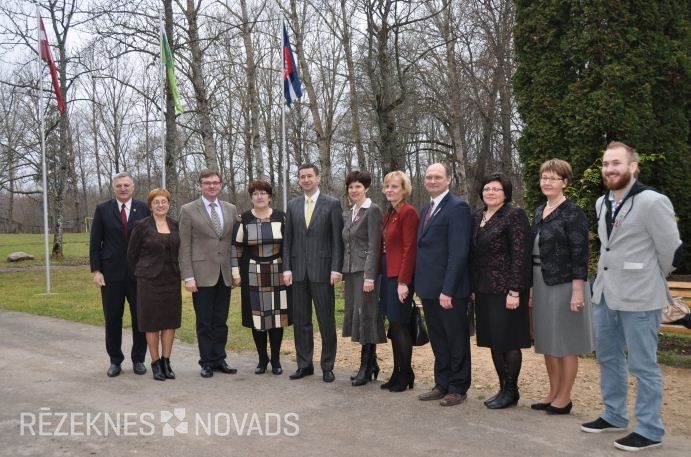Minister of Education of Rezekne

On Wednesday, November 20, Viacheslava Dombrovskis's visit to Rezekne municipality took place. First, the minister visited Feimaņu at elementary school, where he discussed the problems of small rural schools with the chairman of the municipality of Rezekne and the educational administration. The Minister emphasized that both the Rēzekne municipality and the country as a whole have too wide the school network: “we have 9 to 10 pupils per teacher, while there are 15 pupils per teacher in other European Union countries. As the increase in the target grant of teachers in the coming years is not planned to be higher than the economic upward, that is, four to five per cent per year, the optimisation of educational institutions is inevitable,” V.Dombrovskis admitted. As the Minister pointed out, the largest number of teachers per student is in the secondary school group: “for example, if one teacher can teach several subjects at a primary school, then the secondary school will rarely be able to teach both history and physics, so the Ministry of Education and Science currently offers to increase the remuneration of teachers by reducing the number of secondary schools.” In order to implement this idea, the first step will be taken as soon as the Ministry determines the minimum number of pupils to be placed in order to open Class 10. They are currently expected to be 15 students. “In implementing such optimisation, we will be able to protect primary schools because the child's first educational institution must be as close as possible to the place of residence,” said the Minister.
In the next visit, V.Dombrovskis visited Maltas special boarding school where the school specialists told about rehabilitation measures in children with severe developmental disorders. The delegation was able to ascertain how much investment in the education of children with disabilities is carried out BY the teachers of THE Maltas special boarding primary school teachers – if they have just arrived at school, many children are almost helpless, then, with regular and unselfish teachers, children have learned both to take care of themselves, to prepare for food and to create their own works. It should be noted that young people with disabilities after the age of majority, when neither the state nor the local government have a legal obligation to take responsibility for them, often find it difficult to find their place in life, so the school director Ivan Bebriš encouraged the Minister of Special Schools to allow the opening of production companies – those young people with disabilities who have worked on the sewing, cutter or any other position could work by selling out-of-order orders.
After that, the delegation visited Maltas 2 nd High School, where the school's management informed about the minority and professionally oriented art program that could be learned at school. The Minister was also informed of the planned school infrastructure project, as part of the development centres of Latvia: Maltā, Kaunatā, Dricans and Nautriene – to establish four educational business contact points, as well as to adapt the premises for the establishment of educational establishments of pupils.
“It is good to know the rules of the game,” says Lily Žukovskis, head of the municipal education administration of the municipality of Rezekne. “The meeting with the Cabinet has been valuable because we have not only received answers and planned solutions to several of our problems, but also provided the Minister with ideas for improving the quality and diversity of education. Hopefully they will be taken into account. '